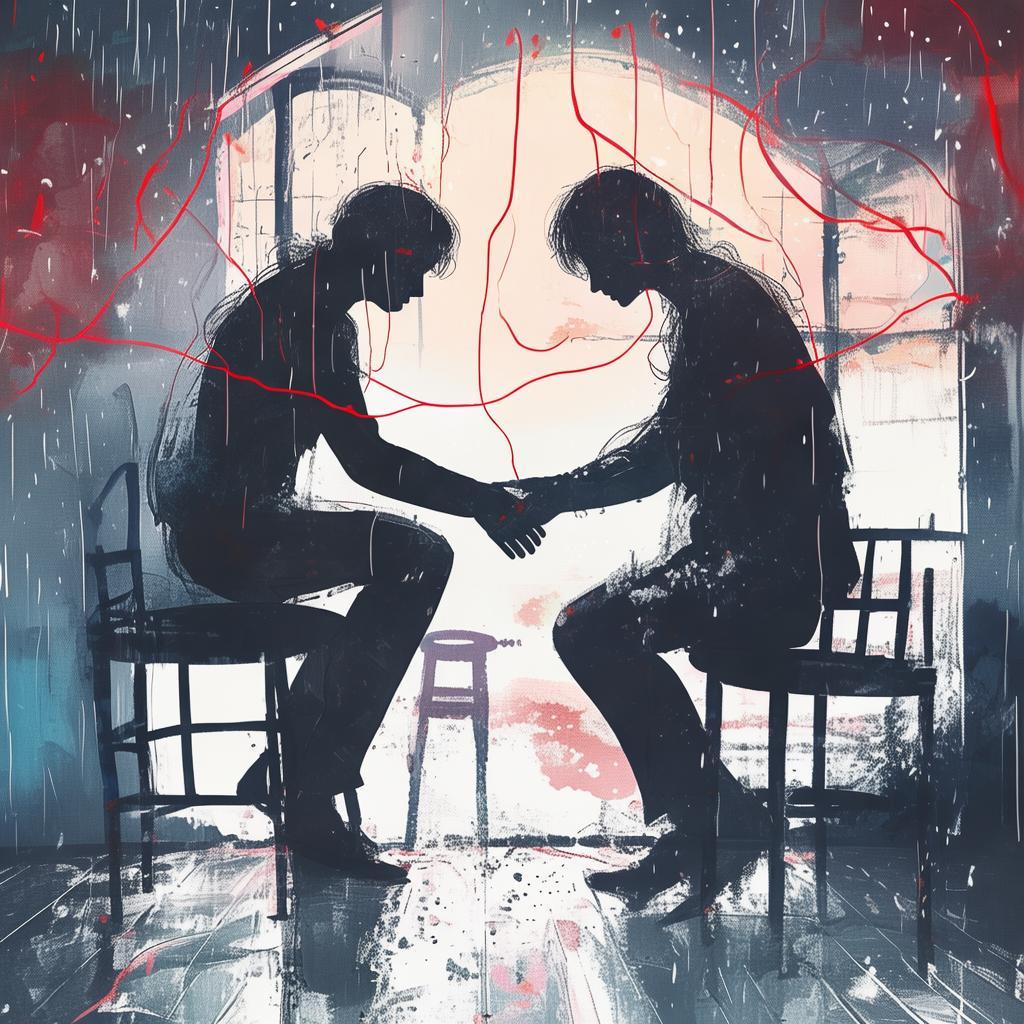The Ironclad Iliad: The Unyielding Love of Demos and Diomedes
In the heart of the ancient city of Troy, where the clash of iron and wood echoed through the air, there stood two muscle gladiators, Demos and Diomedes. They were not just warriors, but symbols of the might and resilience of their people. Demos, with his muscular frame and piercing blue eyes, was the son of a revered warrior, while Diomedes, with his broad shoulders and fiery red hair, was the son of a nobleman whose lineage was as storied as it was troubled.
The two had been pitted against each other in countless battles, their muscles tensing with each strike and parry. Yet, in the midst of the chaos, a silent understanding had formed between them. They were not just competitors; they were kindred spirits, bound by a love that transcended the arena's cruel demands.
As the Iliad raged on, Demos and Diomedes found solace in each other's company. They would share stories of their lives outside the arena, of their dreams and fears, of the love they felt for their fellow soldiers and the hope that one day, peace would reign over the land.
One fateful day, a betrayal shook the very foundation of their world. A traitor among their ranks had revealed their secret love to the king, who, in his wrath, decreed that one of them must die. The king's decree was a cruel twist of fate, for Demos and Diomedes were not only warriors but also brothers in spirit.
The night before the execution, they met in the shadows of the ancient city. Demos's eyes were filled with sorrow, but his voice was steady as he spoke to Diomedes.
"I can't let you die alone," Demos said, his voice barely above a whisper. "I will face the king and take your place. You must live, Diomedes. You must carry on our love."
Diomedes's heart shattered at the thought of losing Demos. "No, Demos. You are my strength. You are my life. I cannot let you die for me."

The words hung in the air, heavy with emotion. In that moment, they knew that their love was more powerful than any decree or sword. They vowed to stand together, to face whatever came their way.
The next day, as the sun rose over the city, Demos stood before the king, his eyes unwavering. "I am willing to die for my brother," he declared. "Let him live, and I will take his place."
The king, taken aback by Demos's bravery and the depth of his love, relented. "Very well," he said, "but know this: if Diomedes ever betrays you, I will make him suffer a thousand times more than you."
Demos nodded, his heart heavy but resolute. "I understand."
With Demos's life saved, Diomedes knew that their love had triumphed over the darkness. They would continue to fight, not just for their lives, but for the love that had brought them together.
As the Iliad continued to unfold, Demos and Diomedes faced countless trials and tribulations. They fought alongside their fellow soldiers, their bond growing stronger with each passing day. They faced betrayal, loss, and the ever-present threat of death, but through it all, their love remained unyielding.
In the end, it was not the might of their swords or the strength of their muscles that won the day, but the love that Demos and Diomedes shared. Their story became a legend, a tale of unbreakable bonds and the power of love to overcome even the most formidable of foes.
And so, in the heart of the Ironclad Iliad, Demos and Diomedes stood side by side, their love as unyielding as the ironclad ships that once dominated the seas. They had faced the ultimate sacrifice, and in doing so, had proven that some things, like love, are truly indestructible.
✨ Original Statement ✨
All articles published on this website (including but not limited to text, images, videos, and other content) are original or authorized for reposting and are protected by relevant laws. Without the explicit written permission of this website, no individual or organization may copy, modify, repost, or use the content for commercial purposes.
If you need to quote or cooperate, please contact this site for authorization. We reserve the right to pursue legal responsibility for any unauthorized use.
Hereby declared.









